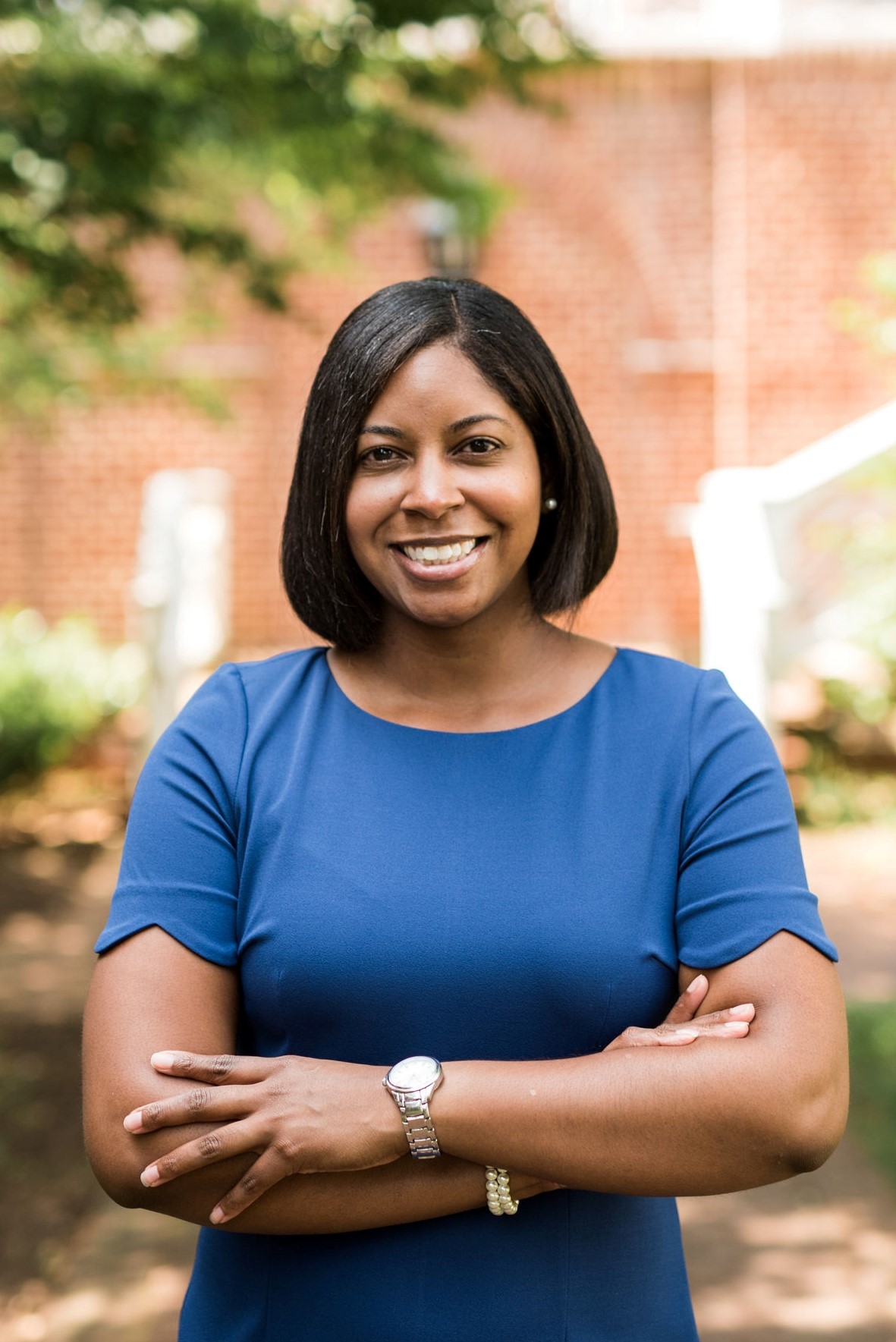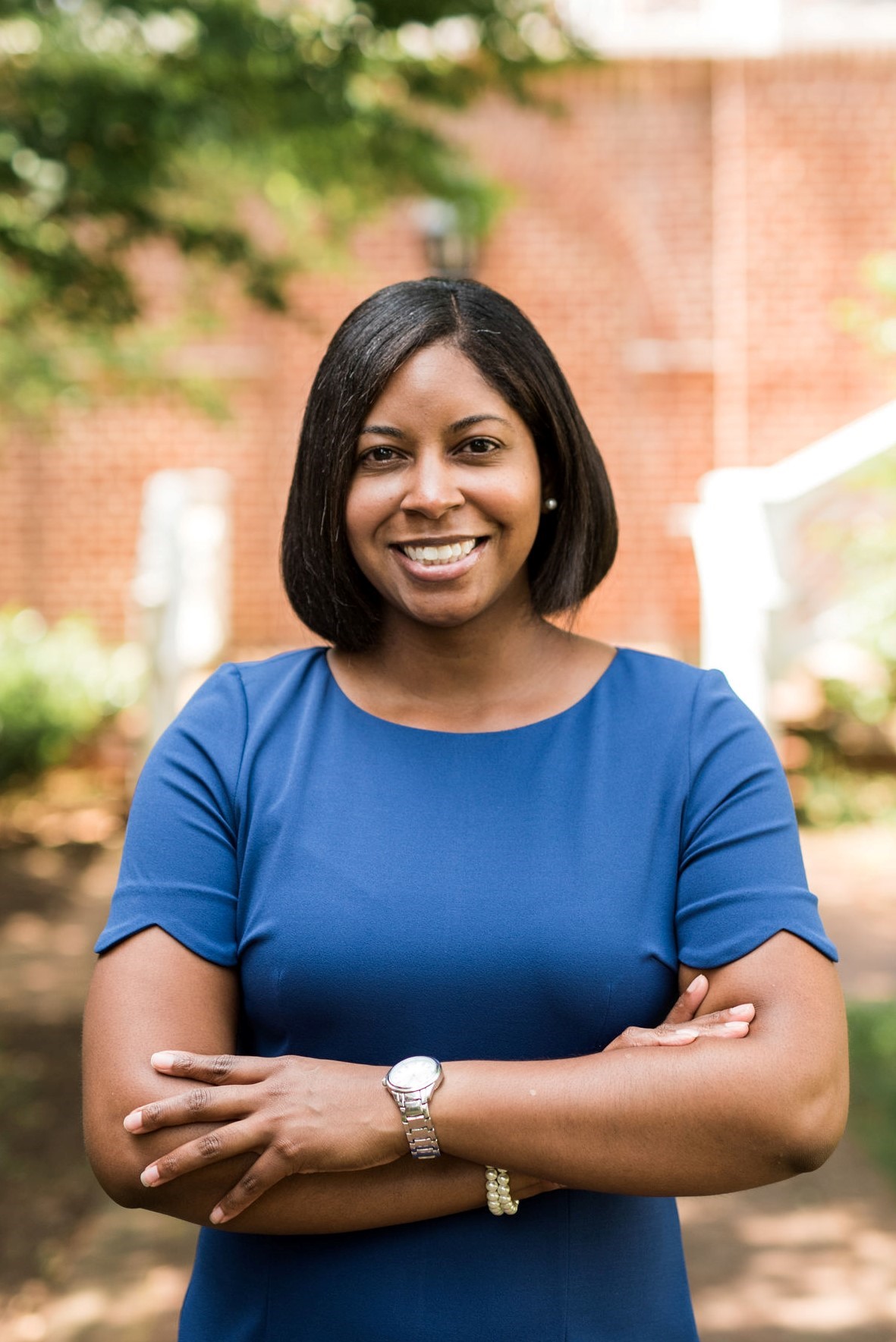

GradLeaders recently interviewed Shavone Dudley, the Associate Director of Employer Engagement at the University of Virginia, Darden School of Business. Shavone graciously shared the process of connecting employers with students, gave great insights on what employers are looking for in candidates today, and provided valuable advice for hiring employers. Here’s what she had to say to our intern, Emily Mowry:
Emily: How long have you worked at the University of Darden?
Shavone: I have been at UVA Darden School of Business for almost 9 years. I actually looked it up this morning, July 16th will be my 9 year anniversary.
Emily: Wow, congratulations, and what’s your position? Can you describe your role and a little bit about your team structure?
Shavone: Yes, so my title is Associate Director of Employer Engagement. In recruiting we call ourselves ER for short. My position or my role so to speak, is completely employer facing so we work with employers on their strategy at Darden recruiting, whether that’s an on-ground presence or an off-ground presence. Postings, events, and so forth all the way from planning through execution, which normally is in person. But this past year was a virtual format, but I’m still helping them, no matter what format it is. As far as our team structure, our Career Center is broken out into essentially three groups. An employer engagement side, which is the side that I’m one completely employer facing, a career coaching side which is very student facing, the coaches are working with students on their career strategy and planning, and then we have an operations team which is everything in between; working with GradLeaders, employment data and other systems that we use.
Emily: OK, awesome, and if you wouldn’t mind, could you tell us a little bit about your educational background and your previous work experiences so we can understand how that lead you to where you are today?
Shavone: Yes, it actually was probably not the direct path into higher education. So I graduated from Radford University in 2003 with a bachelor’s degree in English, not sure what I was going to do with that and I actually went into a lot of different roles after that and ended up at NTELOS, which was a small telecommunications firm in Waynesboro, VA, which is really outside of Charlottesville, where we’re located, probably about 30 minutes. And where it was great, it was a lot of customer service and the last role that I was in was called an Indirect Retailer Billing Rep, though really what it was, was account management. So I transitioned to Darden into the Career Center with an account management background and started working with employers. So it was different because it was now more relationship management than account management, so I think it brought a lot of skills that were very data oriented and spreadsheet oriented and organizational skills into this role, but it was very different in the aspect that we are building relationships with these employers and not just an account.
Emily: Yeah, that’s an interesting distinction, but it definitely makes sense. What would you say is your favorite part of your job now?
Shavone: The favorite part of my job in in essence, is that I love organization. I love the planning. I love putting the pieces together and figuring out the puzzle. So we do that for six months. Six months of just planning. What I really enjoy is the execution piece so that you’re on a phone call or email communication back and forth with your employers for six months and you actually finally get to see them in person, and greet them, and talk to them, and be a part of their journey at Darden from an employer side. So it is great working with them and seeing all the work that we do, planning and executing and how that ends up at the end, whether they get hires or not. Just that they were successful in executing their strategy.
Emily: Right, that’s cool that you get to see the entire process come together and then the impact that it leaves. So can you describe the recruitment process that you guys go through or how you build those relationships with employers? And then how that connects them with students?
Shavone: So I would say that the bulk of the companies that recruit at Darden have an established relationship, so I won’t say that the Danaher’s of the world, the Googles of the world, the McKinsey’s or the JP Morgan’s of the world, they’ve already been recruiting with us. So in in that essence we are still maintaining those relationships and continuing to build on them. And so that process is very different for someone who’s established to someone that were on boarding for the first time. So in on boarding a company for the first time, we walk them through what is the garden student profile? What are you currently looking for? What audience, what roles? Here’s our employment report. And making sure it’s a match of you’re the right fit for Darden and Dardens the right fit for your company before moving into “let’s recruit at Darden, and what does that look like?” And even though we don’t have a formal plan, it really is making sure we schedule you for events that are going to be in your best interest. So we look to some of our multi company events where you’re in a broader environment, possibly instead of a company briefing where you may have a smaller audience and we start off small and we also have them post their roles within Darden Career Link our recruiting platform and we build on that momentum there. The way we connect them with students is in both ways through our recruiting platform, the students will see the visibility in the marketing of those companies, but we also connect them with the clubs that would best suit them. So, if you’re looking for students with a data science background, then we’re going to connect you with that club. A general management background, we’ll connect you with that club. So we do that direct connection for them and then just in our career newsletter, we highlight if companies have postings or what events are coming up, so we utilize that as well.
Emily: Right, OK. And I’m sure it’s different for every employer, but what would you say are some of the main qualities that you’ve noticed most employers are looking for in students today?
Shavone: I would say the one I’m going to mention is probably the one that is even more important now after we’ve gone through a pandemic. But before the pandemic what we were hearing from different companies was that students needed to be resilient and if 2020 did not show them that they had to do that, I don’t know what else would. So I would say resilience is still at the top of the qualities that companies are looking for. As well as students being agile. I guess we could say on the tech side, a lot of technical skills that maybe weren’t needed as much before, are now. So is that Python? Is it SQL? Is it tableau? We are seeing a shift there as well as companies wanting a data analytics background as well.
Emily: Yeah, OK, well that makes sense. What would you say are some of the main problems that employers are facing today? And how are you helping them find solutions to those problems?
Shavone: I would say as of today, especially coming from a pandemic and probably a very hybrid world in this upcoming year as we’re not completely past it, but I think we’re moving in the right direction. I think the challenges that companies will find is just how to be present to the “many” instead of the “one.” I think their challenges are going to be how do they balance their recruiting coming into this year of what’s virtual, what’s in person, and how each school is doing it differently. I do also think it’s going to be very competitive as I saw last year being very competitive. So how do you reach those students and identify the ones that you’re actually looking for? I think that has been a challenge this past year and maybe it’s a challenge going into this year. And the way we do kind of help them with that though is we do partner with the career coach that’s aligned with our industry. So I have general management companies and I partner with the career Coach on our team who also coaches the students in that industry. So we partner together with the companies on; what is your student profile? What are you looking for? And make sure that they’re connected with the club and doing the events that are bringing that talent to them that they’re actually looking for.
Emily: OK yeah, awesome. And how would you say that your engagement efforts with employers have changed since COVID-19 and from working in a virtual environment now?
Shavone: I think the biggest change was just not being able to see people in person and connecting with them in that way in multiple touchpoints throughout the year. A company would come in September, then back in November, and then we’d see them again in January. So I do think that was hard for us and hard for the companies. But what we did to try to combat that is treat it like it was any other day. So before we would meet you at 7:00 AM for your interview schedule and we would make sure you had everything you needed before you started at 8:00 AM. We didn’t do that any differently. At 7:00 AM, we are online and we are making sure that you have everything you need, and we’re available all day for any technical issues you may have, or if there’s something that changes with your technology. So we did that from start to finish trying to keep a sense of normalcy that we are here, even though you can’t see us.
Emily: Yeah, I’m sure it was a weird adjustment going virtual and not getting that personal relationship, but you kept the principles the same and I think that’s probably what helped you. So, what advice do you have for employers who are hiring during this time?
Shavone: I think the biggest thing is to make sure they know what their targets are as they’re coming into the recruiting season and understanding that it is going to be very competitive. I think even more competitive than it was before we went into the pandemic. It’s a great job market. Students are looking but I don’t feel that they’re snatching up offers, but they may have more on the table than they had previously, so really honing in on what you’re looking for and finding the right candidates. As well as just being patient with that process because it may look differently than they did in the previous years with so many companies going after the very same students. And I do think this virtual world opened it up where companies that didn’t recruit at Darden previously, are now looking at our students because they were able to do that in a virtual capacity where they weren’t able to do that in an in-person capacity. So I do think the landscape is changing, but for companies; do the same thing we ask students to do: be agile, be patient, and also just be clear on what they’re looking for to find the right talent.
Emily: Yeah, absolutely, that’s great advice. So switching over to your relationship with GradLeaders, how would you say GradLeaders has impacted your ability to connect students and employers?
Shavone: I will say it was a lifesaver and I mentioned this to my CRM and I feel the whole employer engagement team feels this way as well. It was a saving grace for us going into the virtual component. We were thankful we had a system that could do a lot of things that we were not able to deliver because we were virtual. With the complete shift to virtual having the ability to set up the system in a way that we could use the embedded video for office hours and for interviews, it made it easier for the company. It helped them be in a system that they were familiar with, but it also helped the students being a system that they were familiar with and having that video capability at least brought something back to the table of normal and we would not have been able to do that without GradLeaders and for the companies who didn’t use that video system, we still have the ability to include their links and connect students to them in a different way.
Emily: Awesome, well that’s good and you mentioned that you have used the GradLeaders embedded video meeting tools, so can you talk a little bit about your what your experience was like using that tool?
Shavone: The experience was great once we figured out how to utilize it, and I think that’s anything having to do with virtual this year. It was all new and just kind of working through those kinks and the process. But then once we got into a groove, it worked perfectly. We were able to provide instructions to employers ahead of time. GradLeaders provided us troubleshooting guides to help employers and students if they were having issues with audio or video. So overall the experience was great. Just like anything just getting started was a little quirky, but once we got into a groove we used it all fall into our January interviews.
